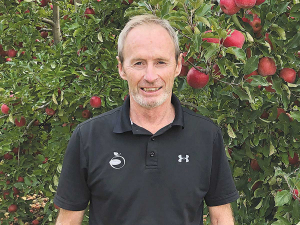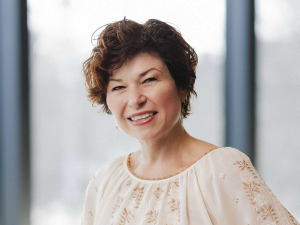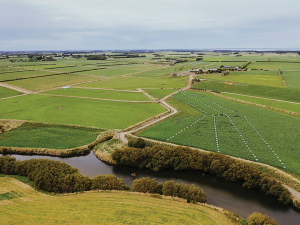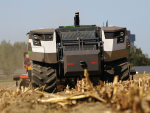Horticulture is “on the boom,” says Freshco director John Mangan.
“With its temperate climate, surrounded by sea, New Zealand is in a very, very good spot for the future, with apple growers, kiwifruit growers and others all gearing up for increased production,” he told Hort News.
Freshco, or The Fresh Fruit Company of New Zealand, is a major exporter of apples and other produce – exporting 1.5 million cartons of apples alone each year.
About a third of that comes from Freshco’s own orchards and packhouse in Hawkes Bay. Around a third from a group of partner orchards with a packhouse in Nelson and the rest from a variety of growers around the country.
Mangan says Freshco puts a lot of marketing effort into Asia. The company has a Tokyo-based marketing manager and a big presence at the Asia Fruit Logistica trade show in Hong Kong each September. Freshco no longer participates in a joint New Zealand stand at the show, but instead sets up its own space off-site – taking advantage of the fact that all Asia’s main fruit buyers and supermarket chains are in Hong Kong for the week.
“All our customers turn up and you can meet them all in one space,” he says. “It’s the first chance to meet for the new season. You’re still in the old season but it’s a precursor for setting up things for the following year.”
Last year, the company used the event to launch new branding for its own PVR (Plant Variety Rights) apples, in particular Sonya and Breeze.
Mangan says Freshco has planted significant volumes of Sonya and Breeze in the last four to five years and they are now being harvested in commercial quantities.
The company also grows “standard” varieties such as Royal Gala, Queen, and Pink Lady. Braeburn, an acidic variety less suited to sweeter Asian palates, is grown for the Europe market.
Mangan says establishing a new variety orchard is a long-term process with “frightening” capital costs and it takes four to five years to get a mature apple crop from it.
But the New Zealand apple industry has swung towards Asia since a major collapse of the European market for New Zealand Braeburns in 2005. At that stage over 60% of New Zealand apples went to Europe.
“Last year 65% of our apples were varieties they like in Asia – which are usually redder and sweeter - and we’ve had probably one of the best years ever,” he explains.
“Asia’s on our doorstep. It’s not six weeks away by sea; it’s two to three weeks. And it’s not just China; Thailand, Malaysia, Vietnam, Indonesia, all those countries are right on New Zealand’s doorstep.
More hands needed
John Mangan says the downside for the industry – and not just for apples – is getting enough workers.
“You have to pick when it’s ripe. If you have to leave on the trees unpicked or pick too late and it’s gone over its maturity criteria, you can’t sell that stuff,” he told Hort News.
“We’re always scrambling, and we are bringing in labour from the Pacific Islands. We house them and we look after them and it’s critical that we get that support just to get the fruit off the trees.”
Mangan says there is not yet any mechanical harvesting system suitable for fruit crops.
“You have to pick them by hand. And we need more hands.”
While Government is sometimes criticised for complicated policies around migrant labour, Mangan says it’s not a simple issue.
Growers want to be able to employ local people, but it’s about skills. Pickers also need housing.
“You can’t just put everyone up in a caravan or a tent. So, the infrastructure around that has to happen reasonably quickly – within the next four or five years, I’d say.”











